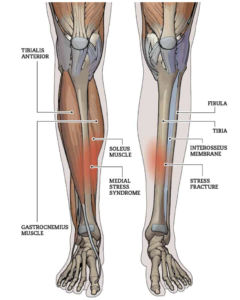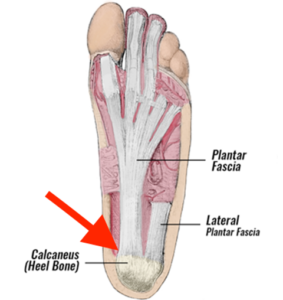1) Sleep
Cody suggests the following key advice:
- 7-9 hours as recommended amount
- Check out your chronotype aka establishing your ideal sleep patterns (early bird vs night owl) so that you can establish an individualised morning and night routine
- You can discover your individual chronotype for free HERE
- Circadian rhythms (how your brain determines when to release melatonin to wind down and when to release cortisol to rise and shine) vary widely
- “A train breaks miles before it gets into the station” therefore you need to start “hitting your breaks” for your night routine a minimum of 90 minutes prior to your desired bedtime
- Direct sunlight for 2-5 minutes as soon as your wake up will help reset your melatonin clock and improve your sleep quality. Get outside and go for walk ideally.
- Avoid the “react & distract trap” and such as social media scrolling or “doom scrolling” (I love this term so I had to add it). Easier said than done but I’d suggest listening to Cody’s advice on this in the podcast episode.
He uses the analogy of “trash building up in the brain” which fits really nicely with another memorable analogy explaining this topic by Lisa Genova (another neuroscientist). She describes glial cells as the “janitors of the brain” aka “the sewage and sanitation department.” These cells as both Cody and Lisa explain are in charge of clearing out the “metabolic debris” that accumulates during hour waking hours. In this video Lisa cites that one of the key bits of “brain trash” that are cleared during sleep is amyloid beta linked with the development of Alzheimer’s. I will leave a link to the video below:
2) Meditation
Cody explains that are many different vehicles for mediation and that ultimately it’s about choosing the one that you are most likely to stay consistent with. Here are few of the types he mentions during the podcast:
- Gratitude, Transcendental, NSDR (Non-Sleep Deep Rest), Body Scans, Yoga, Tai Chi
- Mendi for focused meditation for pre-frontal cortex activation which aids with focus
- 6 Phase Meditation by Vishen Lakhiani is a great choice for the morning (see video below)
- Candle Light Meditation (to help building separation bet
Neurophysiological benefits of meditation:
- Releases BDNF (brain derived neurotrophic factor) which supports the survival of existing neurones (if you’re interested in learning more there’s a fascinating article on Science Direct I will link HERE)
- Increases neurogenesis
- Improves neuroplasticity
- Strengthens connection between prefrontal cortex and emotional centre of your brain providing you will better emotional regulation
- HPA (hypothalamic-pituitary-adrenal axis) which controls fight or flight response (parasympathetic vs sympathetic response) meditation allows you to regulate your HPA axis allowing your to dampen an excessive or unwarranted fight or flight response allowing your to “bail out” excessive cortisol levels “flooding your ship” so to speak.
3) Alcohol
Cody opens this section of the podcast with a striking statement: “Alcohol is a poison for your brain” and while I appreciate this may be unsettling for some to hear, I believe sometimes we need to hear explanations that haven’t been sugar-coated and are a bit jarring in order to make positive changes to our health habits. Personally I drink occasionally, I enjoy a glass of white wine every now and then, however the more I consciously reflect on the benefit to risk ratio of alcohol “how much do I enjoy that glass of wine vs the negative effects that come with it?” I have steadily moved towards an alcohol free life. I ask Cody about the social barriers that may stand in the way of people wanting to reduce alcohol consumption because I feel that is very pertinent. I didn’t drink during University and it was a choice that came under extreme scrutiny and judgement. So I completely understand how hard it can be to not have a drink in certain environments. One thing I will say from personal experience is that finding a social group that supports you in a healthy lifestyle is key. This is the same time in my life when I found CrossFit and it was fundamental in nurturing healthy habits that still continue to this day.
Some of the negative effects of alcohol on brain health Cody cites:
- Adversely affects cerebral blood flow
- Heavy alcohol consumption has been linked with brain atrophy (link from BMJ on frontal lobe shrinkage HERE)
- Adversely effects hippocampus which is the part of the brain responsible for learning and memory where neurogenesis occurs
- Reduces number of new neurones that can be created
- Adverse effect on mental health due to effects on brain chemistry
- No established “safe dosage” of alcohol consumption when it comes to brain health (you can check out the link to an article looking at this topic HERE)
I’ll link up a couple of articles on the topic HERE and HERE
4) Exercise
“If you could take the neurological and physiological effects of exercise and capture them in a pill, that pill would become the best selling drug of all time” – Stephen Ilardi
- Strong release of BDNF (see above for effects)
- Increases blood flow to the brain
- Effective treatment for depression proven to be as effective vs SSRIs (anti-depressants alone)*
- Dr Andrew Huberman Ph.D., is a neuroscientist has a resource that Cody recommends which I’ll link HERE
- If you struggle to exercise due to an injury feel free to get in touch which me via the website or my Instagram HERE
*Multiple studies on this topic but I’ve linked a recent systematic review and meta-analysis HERE
I’ve included this illuminating TED talk by another neuroscientist Wendy Suzuki on the topic of exercise and it’s effects on the brain. Well worth the watch!
5) Decision Making
“Act, Asses, Adjust”
- Learning to walk is a good example of act, assess, adjust (we don’t spend ages going through the theory
- ANTs (automatic negative thoughts) watch out for beliefs that lead to ANTs
- Action is a cycle not a single event – after you’ve adjusted you’re going to act again in order to get a different result (in other words it’s a constant process of course correction)
- “Feedback not failure”
- Create a “hero” an alter-ego that you put on that allows you to shift your beliefs and take different actions at the same time
- Adopt your hero’s or role model’s thoughts, beliefs and actions by asking yourself “what would my hero do?”
DISCLAIMER
The information shared is this article does not replace medical advice and is meant for educational purposes only.
If you want to find out more about Cody’s services and offerings you can find out more at Rewrite & Rise HERE
You can follow Cody on social media via the links below:
@mindbrainbodylab on Instagram and TikTok
References
Harper, C. (2009). The neuropathology of alcohol-related brain damage. Alcohol & Alcoholism, 44(2), 136-140.
Recchia, F., Leung, C. K., Chin, E. C., Fong, D. Y., Montero, D., Cheng, C. P., … & Siu, P. M. (2022). Comparative effectiveness of exercise, antidepressants and their combination in treating non-severe depression: a systematic review and network meta-analysis of randomised controlled trials. British Journal of Sports Medicine, 56(23), 1375-1380.
Topiwala, A., Ebmeier, K. P., Maullin-Sapey, T., & Nichols, T. E. (2021). No safe level of alcohol consumption for brain health: observational cohort study of 25,378 UK Biobank participants. MedRxiv, 2021-05.



_edited.jpg)


